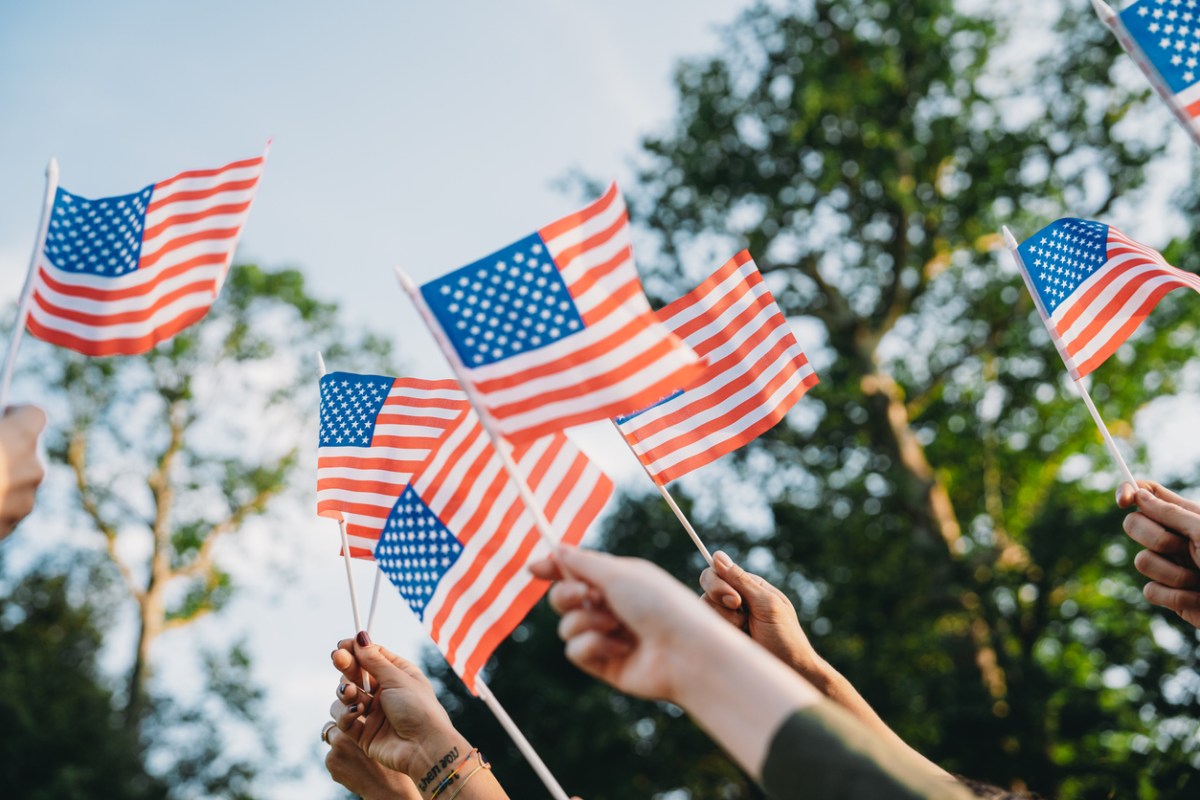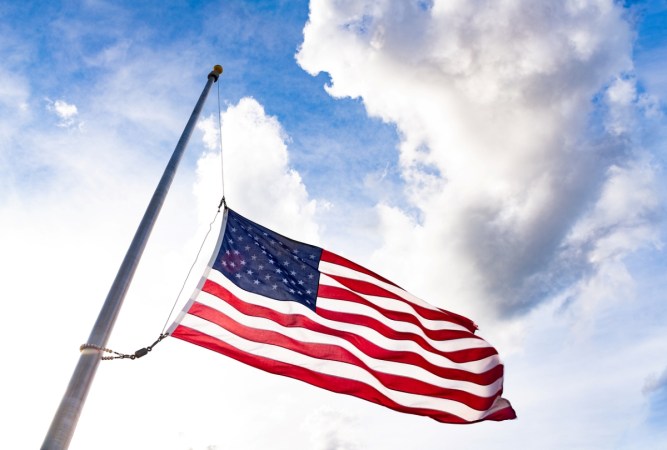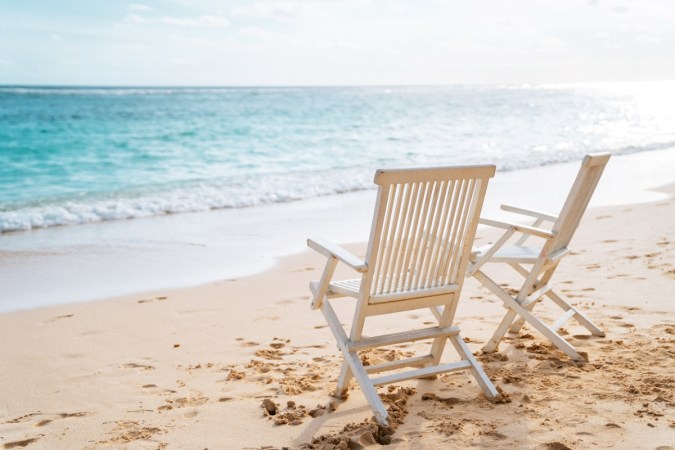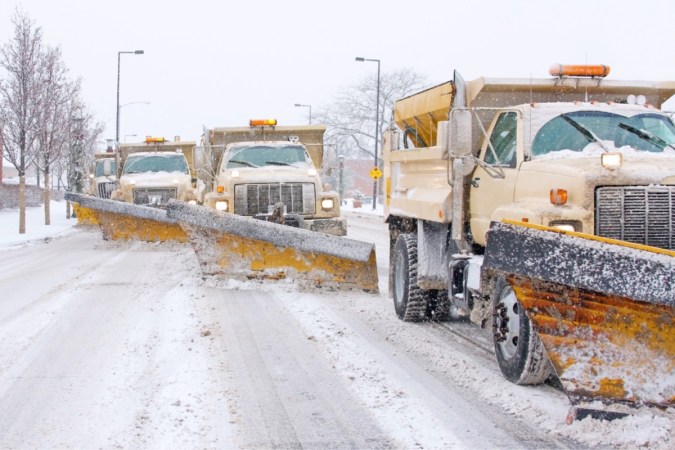We may earn revenue from the products available on this page and participate in affiliate programs. Learn More ›
While more than half of Americans own a U.S. flag, only about half of them fly it daily. The rest only display the flag on holidays like the 4th of July, Veterans Day, Memorial Day, and Flag Day. When displaying it occasionally, or for the first time, it’s easy to forget some of the traditions and codes surrounding the U.S. flag. In fact, the U.S. Department of Veterans Affairs says that states have their own flag codes and can implement penalties if you don’t abide by the rules.
Before you run it up the pole, make sure you know how to hang an American flag the right way. Following are the rules for flying the American flag at home and the blunders that you’ll want to avoid.
1. Hanging the Flag in Bad Weather
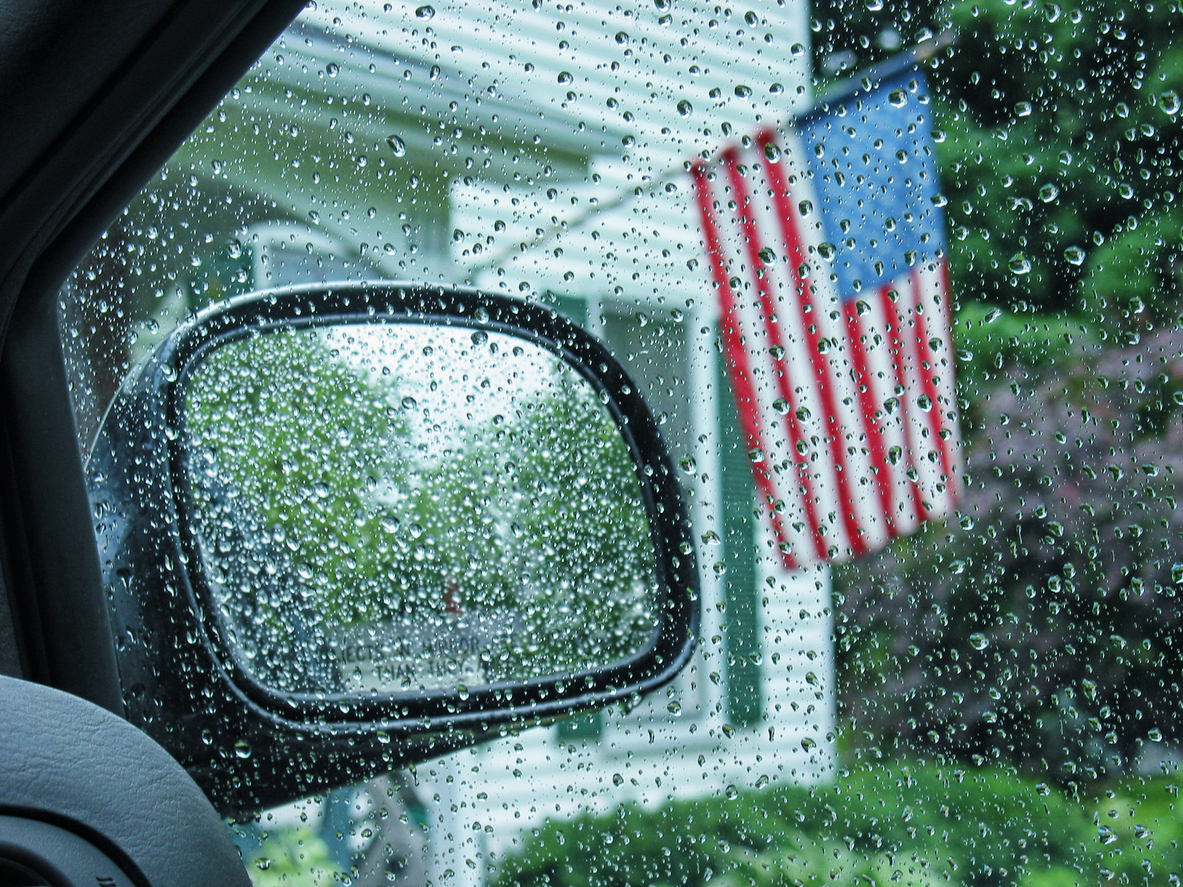
The American flag shouldn’t be subject to weather damage, so be prepared to bring it in if rain, snow, or even a windstorm threatens—that is, unless you have an all-weather flag. An all-weather flag is made of durable materials and treated to resist fading and tearing. The weather can be pretty unpredictable, so keep an eye on the forecast if you don’t own an all-weather flag.
2. Flying the Flag at Night
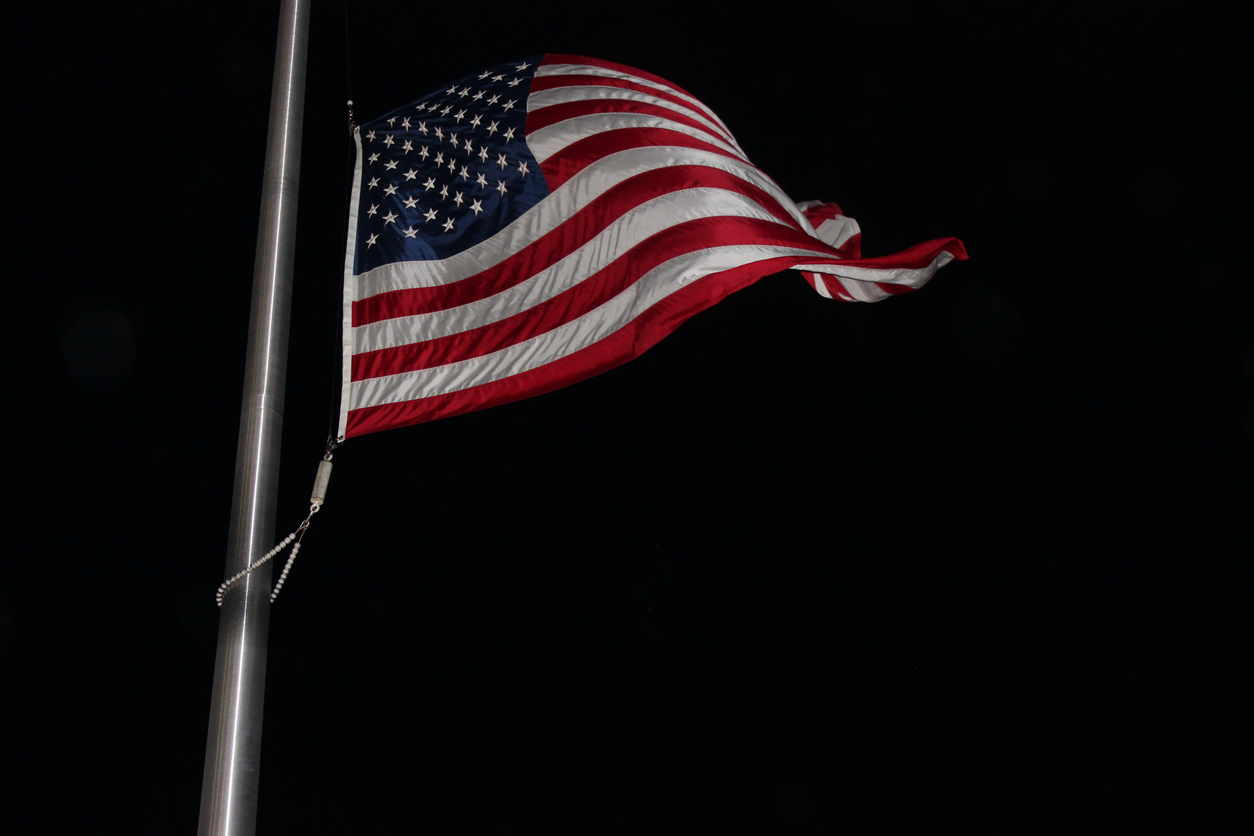
Tradition dictates that the Stars and Stripes should be flown only from sunrise to sunset. If, however, you’re planning a Memorial or Veterans Day celebration that will extend well into the evening, make sure your flag is properly illuminated.
The flag needs to be carefully and deliberately illuminated so that it’s easily recognizable. Just a few strategically positioned spotlights, like hykolity’s LED low-voltage spotlights, can do the trick.
RELATED: Buyer’s Guide: The Best Solar Flagpole Lights
3. Displaying the American Flag Under Another Flag
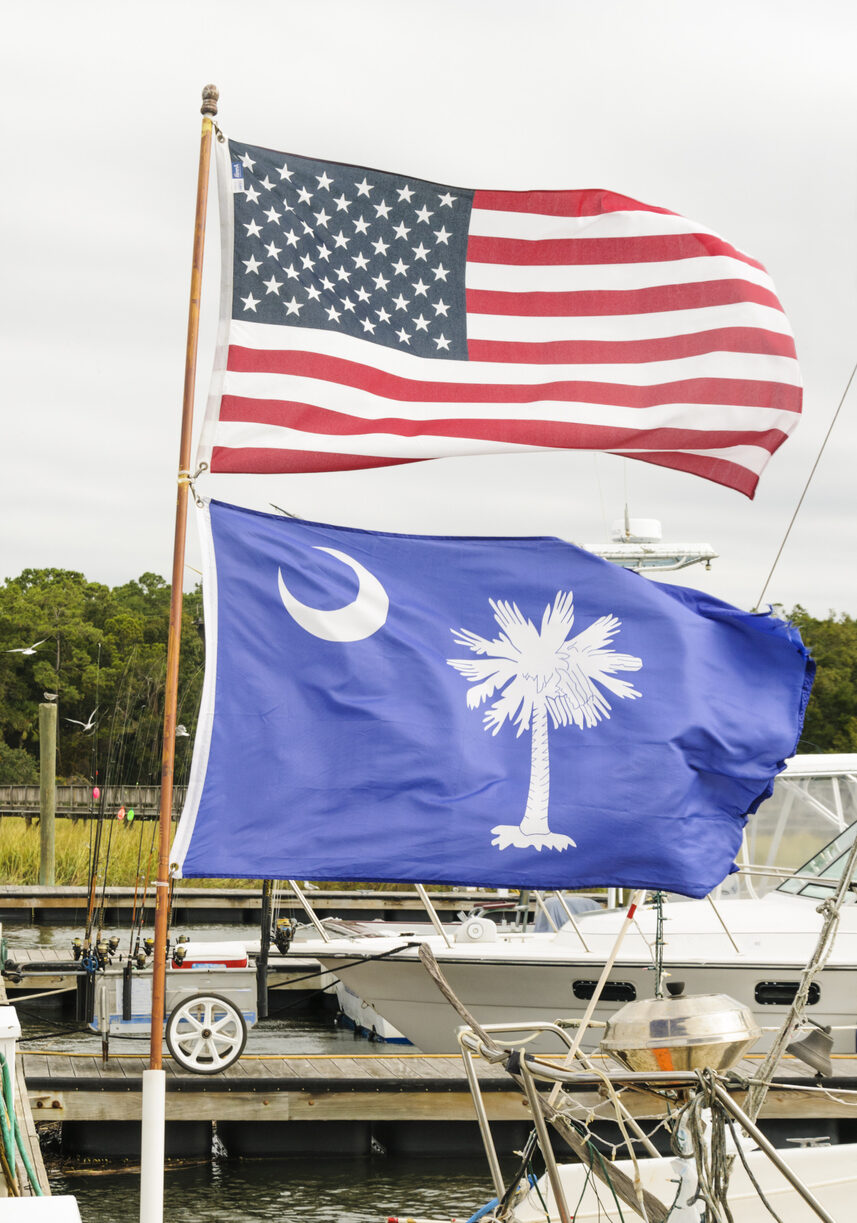
If you have a state or a school flag that will be hung with the American flag, pay attention to each flag’s height. When flying two or more flags on the same staff, the American flag should always be on top.
When displaying two flags against a wall with crossed staffs, the American flag’s staff should always be in the front and on its right (which means the U.S. flag will look like it is on the left to a viewer).
4. Displaying Flags of Many Nations at Different Heights

When two or more flags of different nations are displayed, they are always flown on separate staffs at the same height. On American soil, the U.S. flag is always to its right (the furthest to the left for the viewer).
All of the national flags should be the same size and should never be displayed in a way that favors one over the other. This attention to the flags’ relative positions symbolizes peace between nations. However, on American soil, the U.S. flag is always the first to be raised and the last to be lowered.
5. Flying the Flag at Full Staff Before Noon on Memorial Day
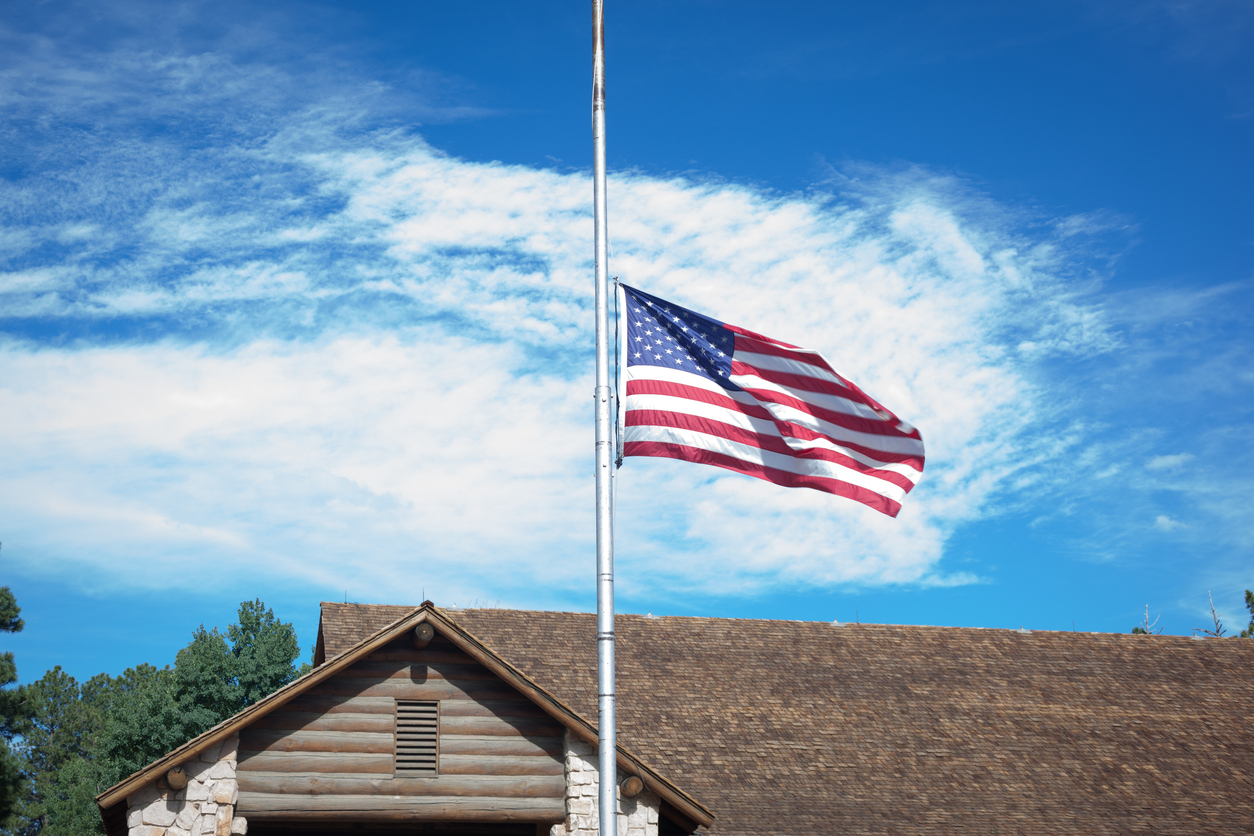
One way to show respect and honor for those who have served our country is to fly the flag at half-staff. A sitting president or governor can order that flags fly at half-staff to honor newly deceased state or federal officials.
Also, to honor those who made the ultimate sacrifice for our country, it is tradition to display the American flag at half-staff until noon on Memorial Day. After the clock strikes 12 p.m., be sure to raise that flag.
RELATED: Why Are Flags at Half-Mast?
6. Orienting the Flag Incorrectly When Displayed Flat

If you choose to hang your flag vertically from a wall, the eaves of a building, or over a street, the flag must be hung so the folds fall freely. While you can display the stripes either horizontally or vertically, pay careful attention to the placement of the union (the blue field with white stars).
- When the flag is hung against a wall, the union should be at the observer’s left (the flag’s own right).
- When the flag is hung over a street, the union should face either north or east, depending on the direction of the street.
7. Hanging the Flag Upside Down
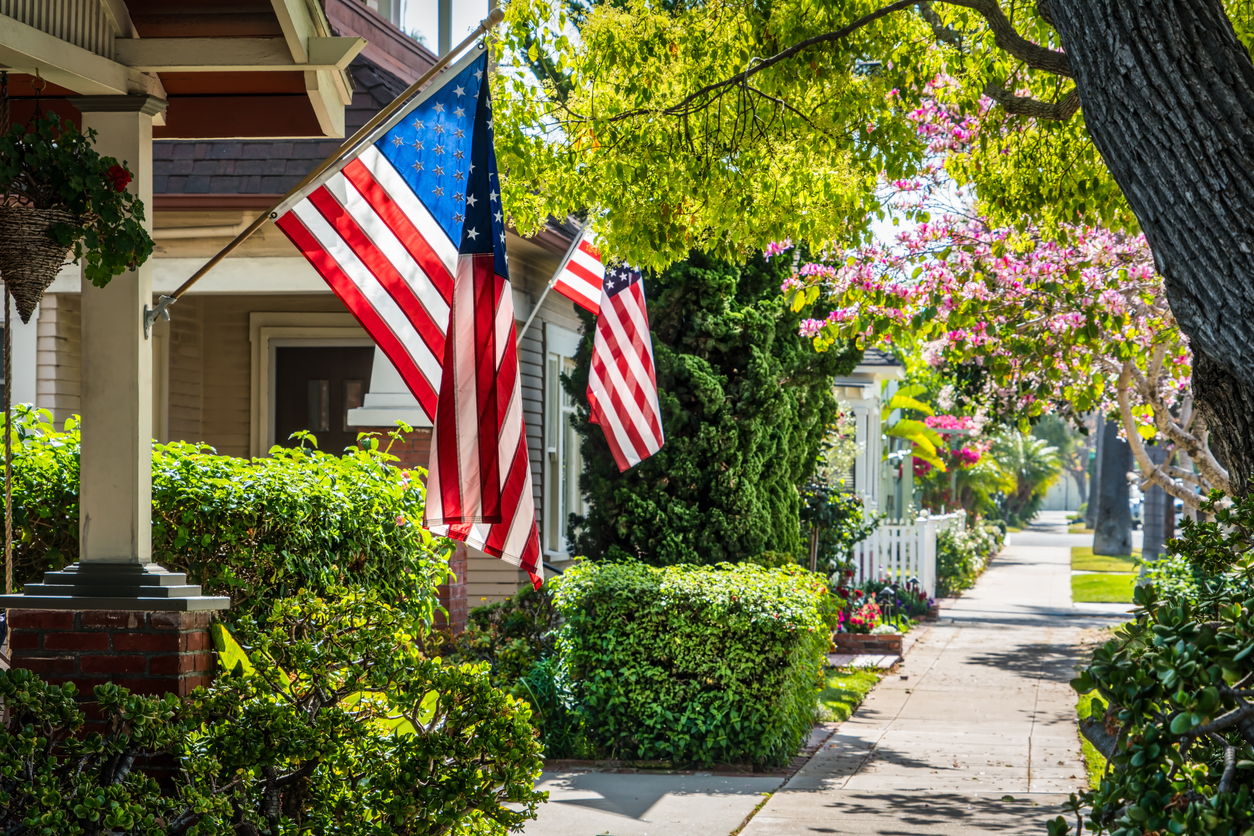
One of the most important rules to remember is to always hang the flag right side up: When the flag is flown from a staff, the union should always be on top to emphasize the importance of the 50 states and the union. A flag flown with the union facing down constitutes a symbol of distress, so be careful how you hang it!
8. Letting the Flag Touch the Ground
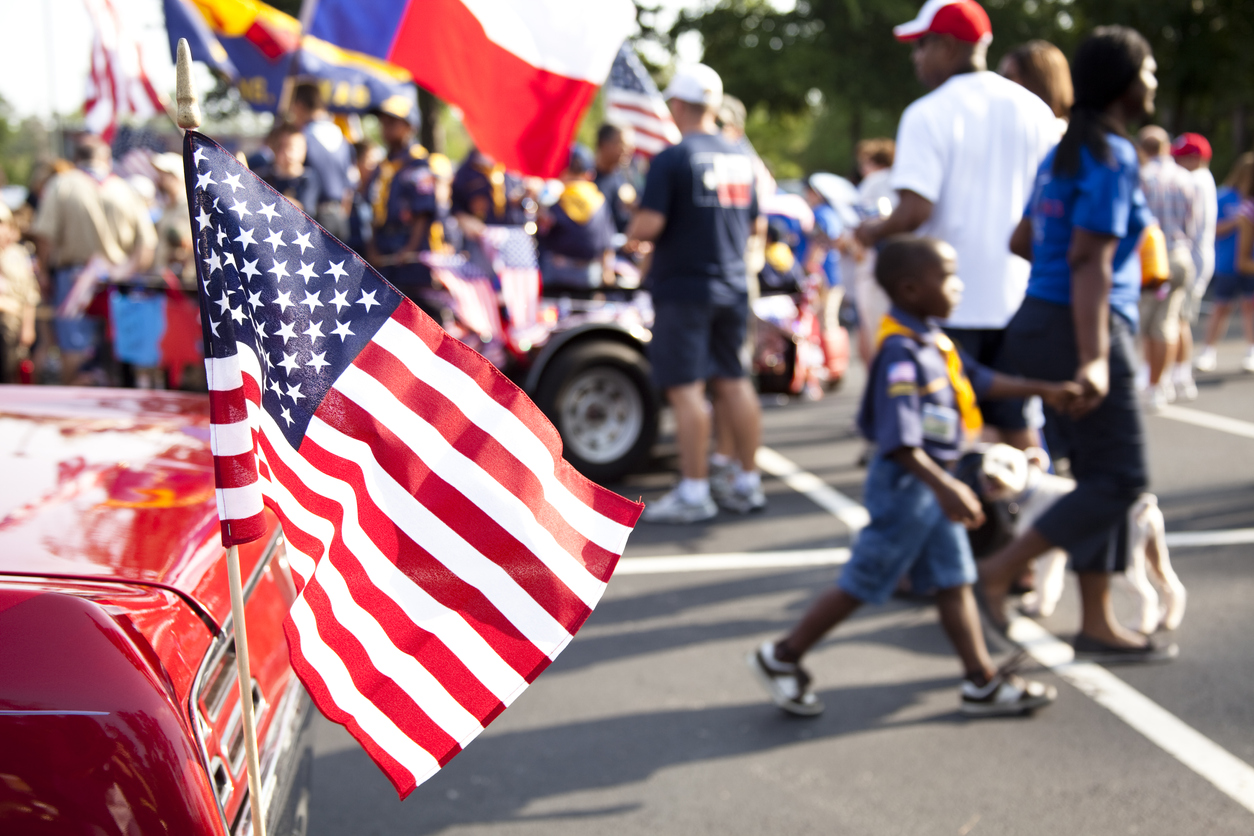
As a sign of respect, never let the American flag touch the ground or any other surface, including the roof of your house, any merchandise, or your car. This rule protects the flag from becoming sullied or dirtied. If you wish to display it from your car, it should be firmly fixed to the right-side of the car like on the front fender.
While there aren’t strict rules for mounting the flag on a motorcycle, general tradition is to mount it on the driver’s right side or on the rear of the bike.
9. Adding Anything to the Flag
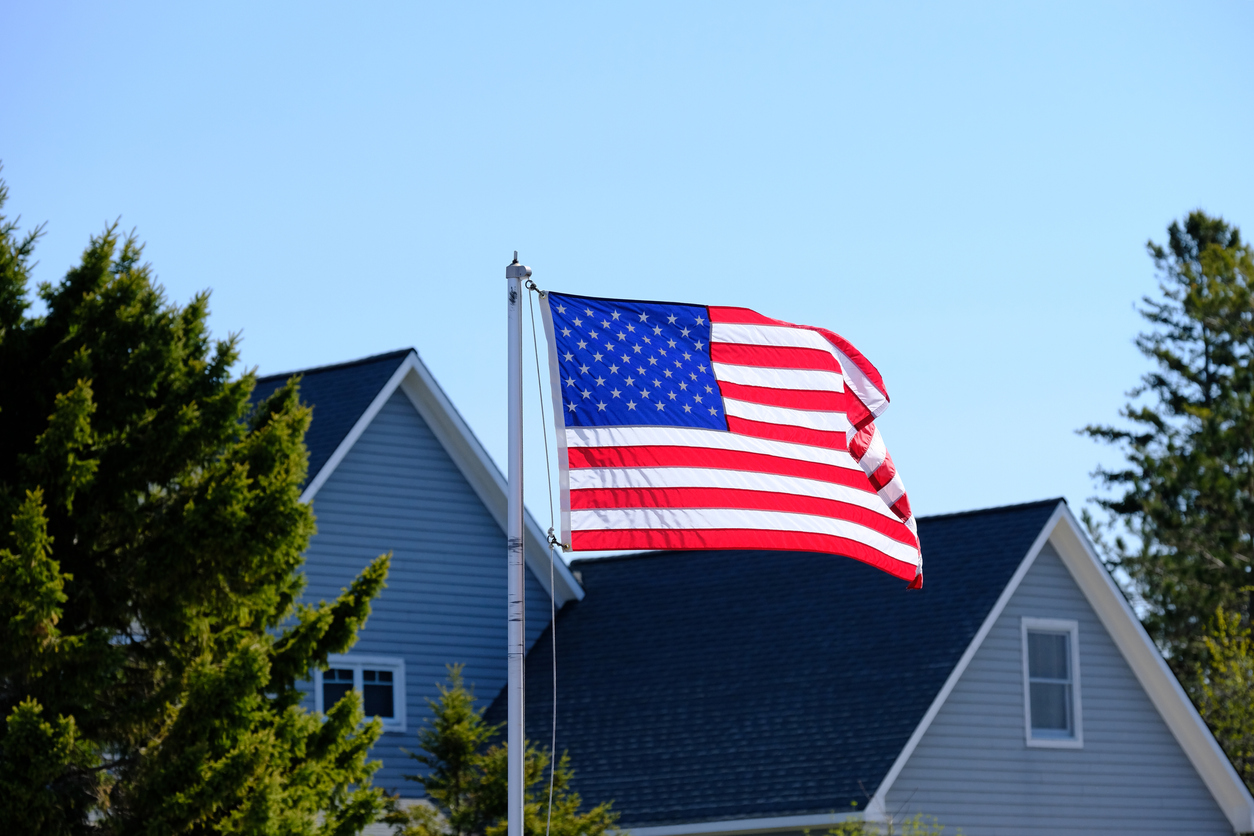
Although it may be tempting to dress it up for a holiday or special event, the American flag should never have any additional designs, letters, or insignia added to either a portion of it or all of it. It’s always best to let the red, white, and blue stand on its own.
10. Displaying a Torn or Tattered Flag
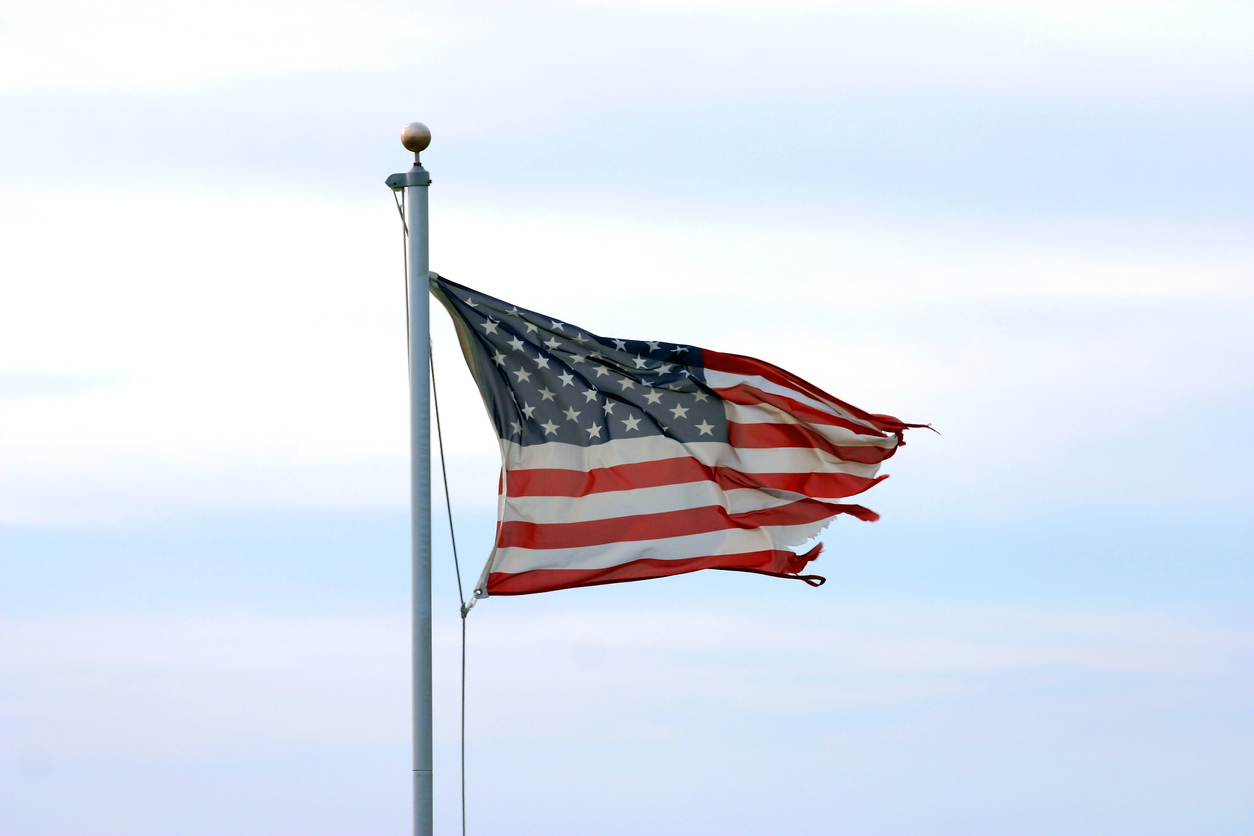
The U.S. Flag Code states that a torn, worn, or tattered flag is no longer serviceable or a fitting emblem for display. A damaged flag undermines the symbolism of unity and honor that it represents.
To properly dispose of the flag, the American Legion suggests disposing of the unserviceable flag by burning it. But, don’t just burn the flag on your own. Look for a local American Legion, Veterans of Foreign Wars, or a chapter of the Girl Scouts or Boy Scouts who hold flag retirement ceremonies.
RELATED: Solved! What Does a Green Porch Light Mean?
11. Using the Flag for Advertising
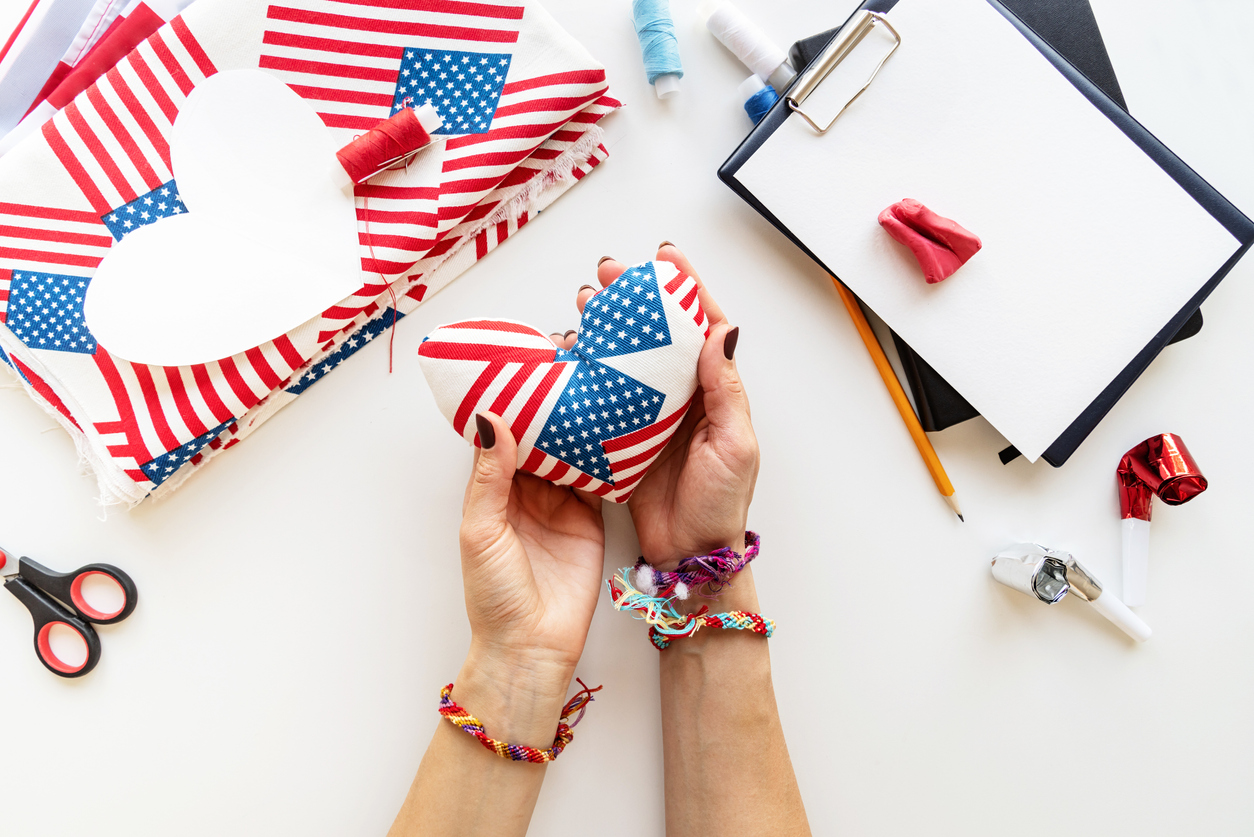
Never use the American flag for advertising as it holds deep emotional and patriotic value for citizens. The flag embodies the history and unity of the United States, and using it for commercial purposes can be seen as a lack of respect.
According to the U.S. flag code, the U.S. flag should not be embroidered on things such as cushions or handkerchiefs and the like, printed or otherwise impressed on paper napkins or anything that is designed for temporary use and discarded.
12. Wearing Clothing Made From an American Flag
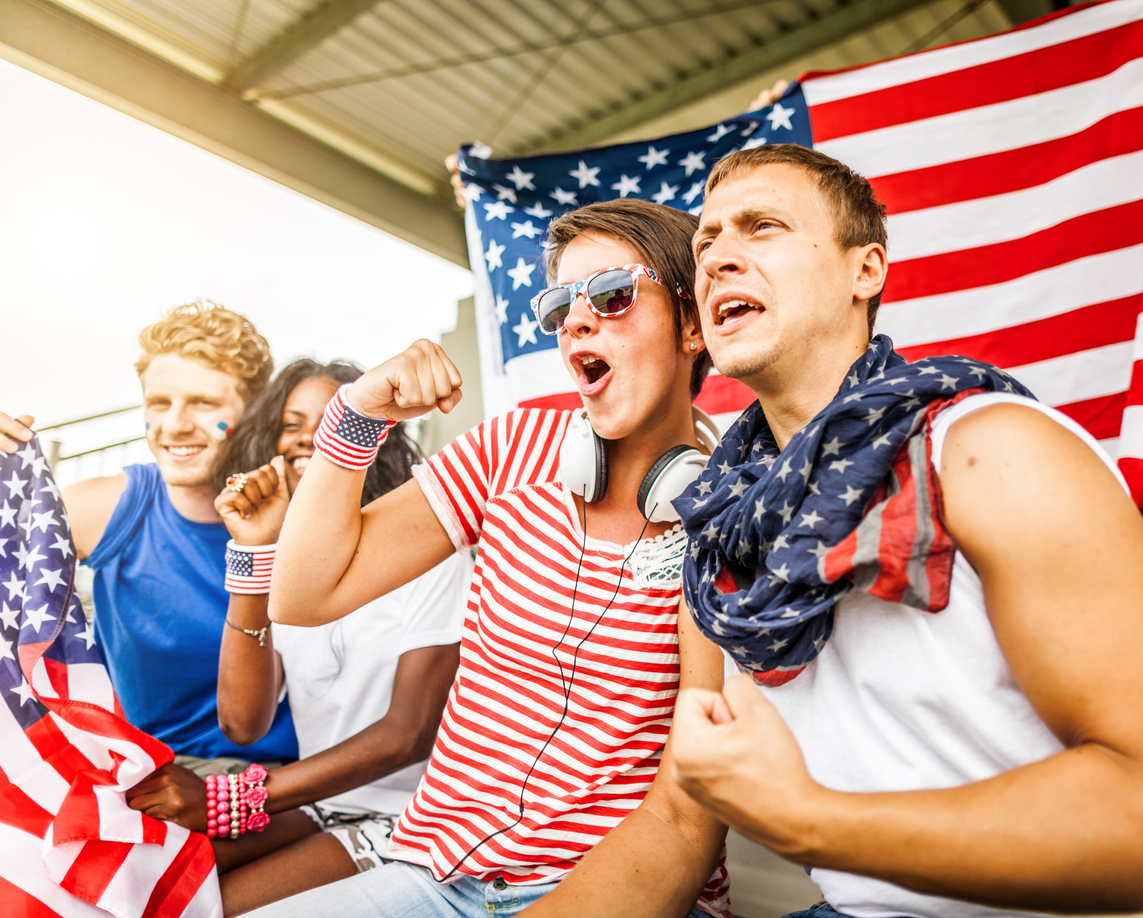
Never use an American flag to make clothing or anything else—bedding, curtains, tablecloth—from an actual American flag. It is improper flag etiquette. (The only exception is that sometimes military, police, or firefighters may be allowed to attach a flag patch to their uniforms.) You can, however, wear clothing adorned with an image or images of the American flag, which is a sign of patriotism and pride.
